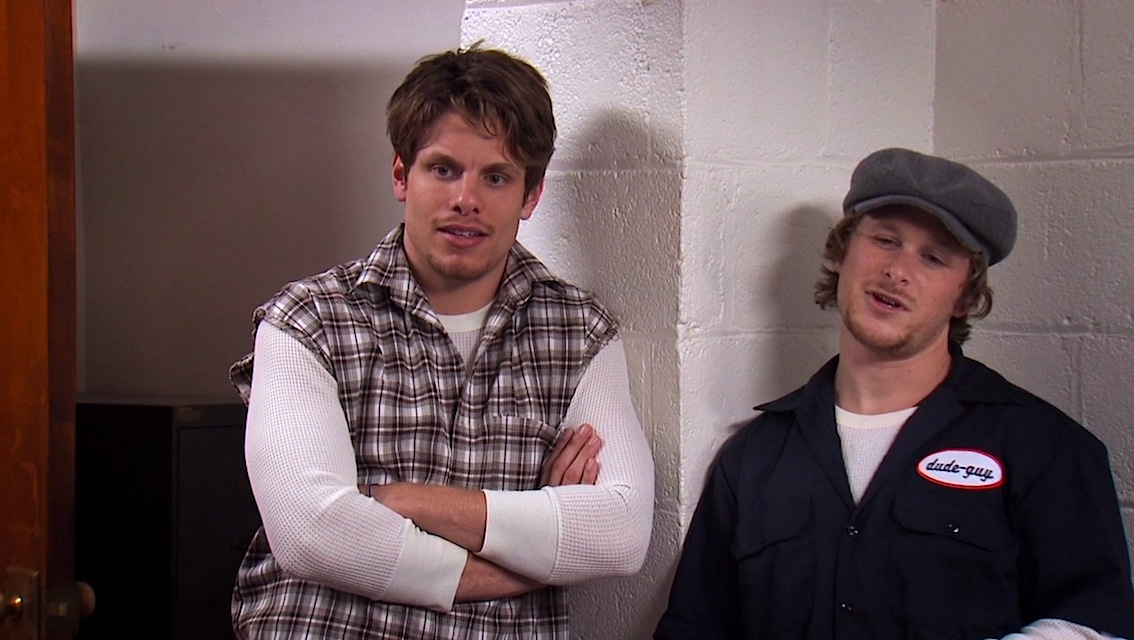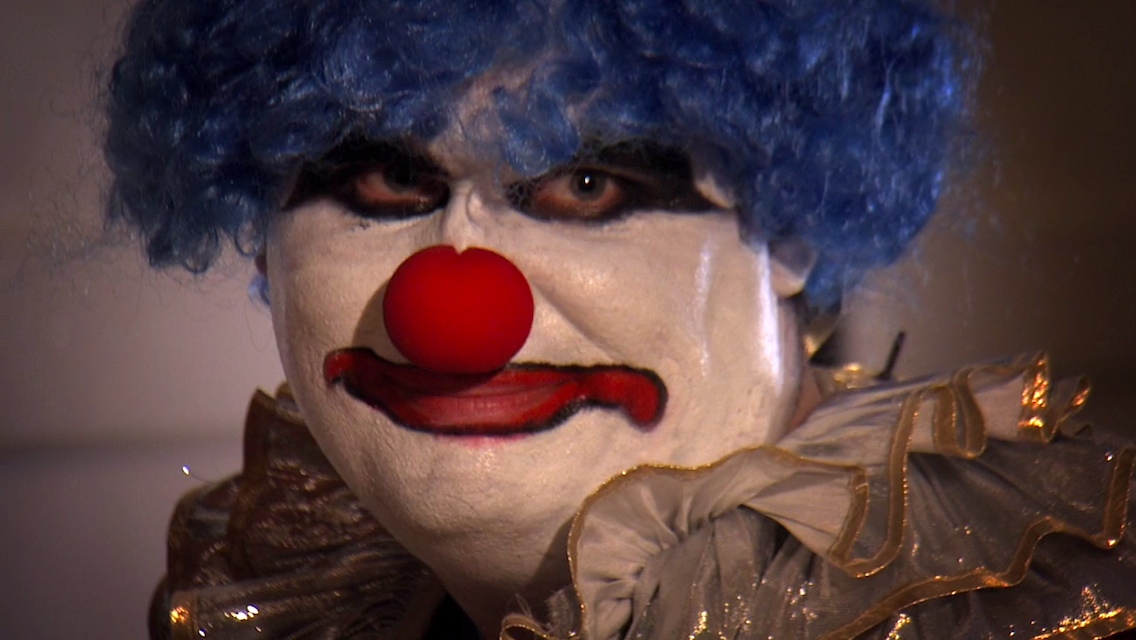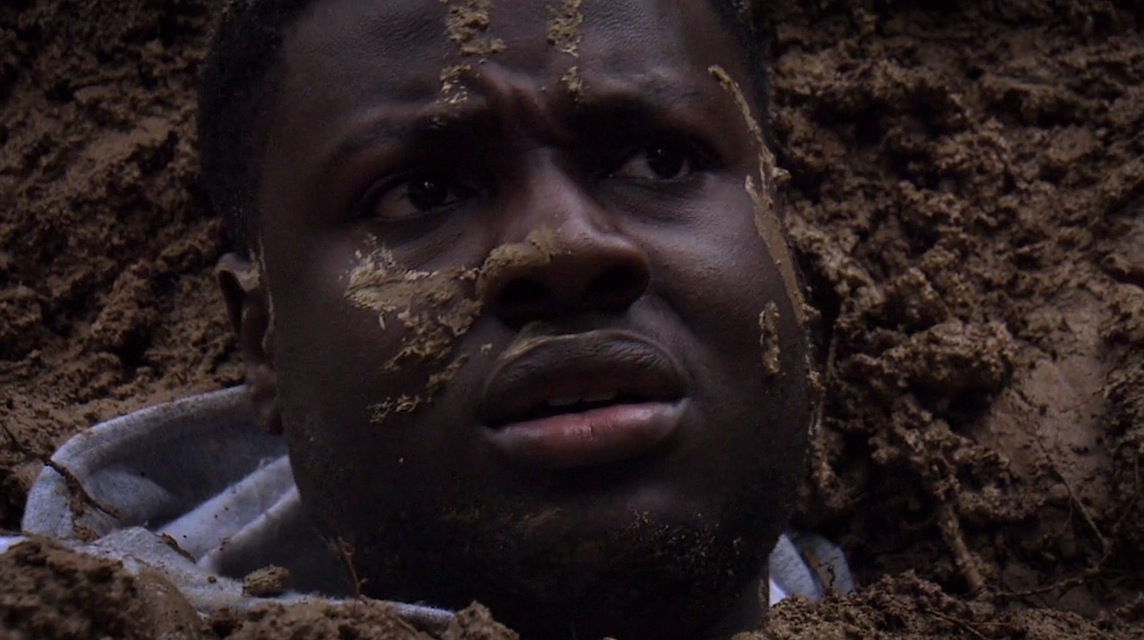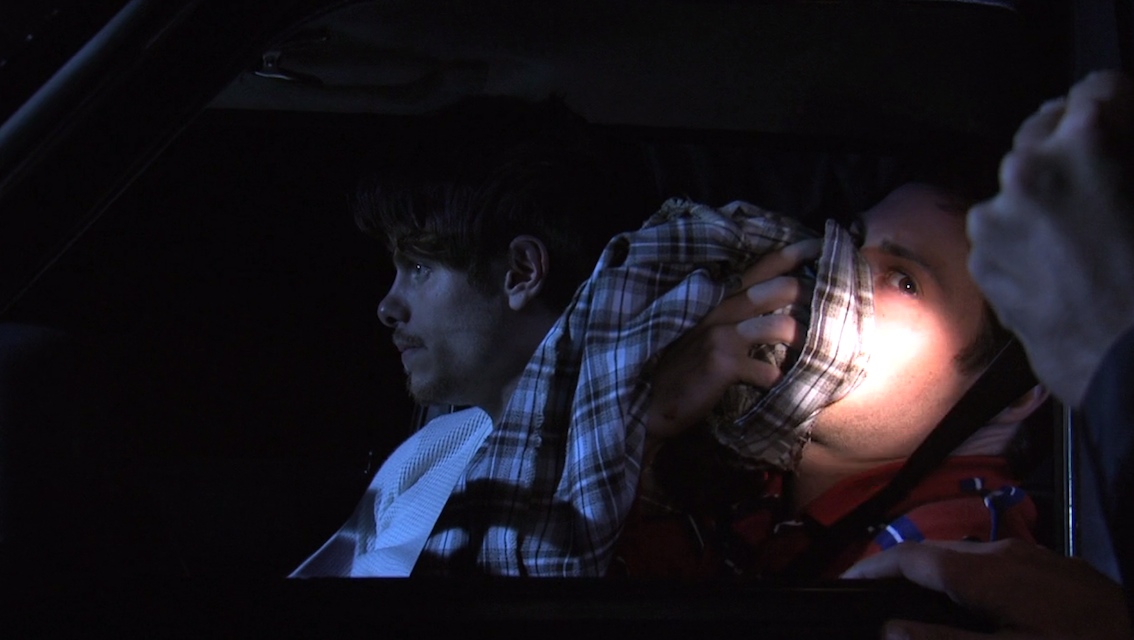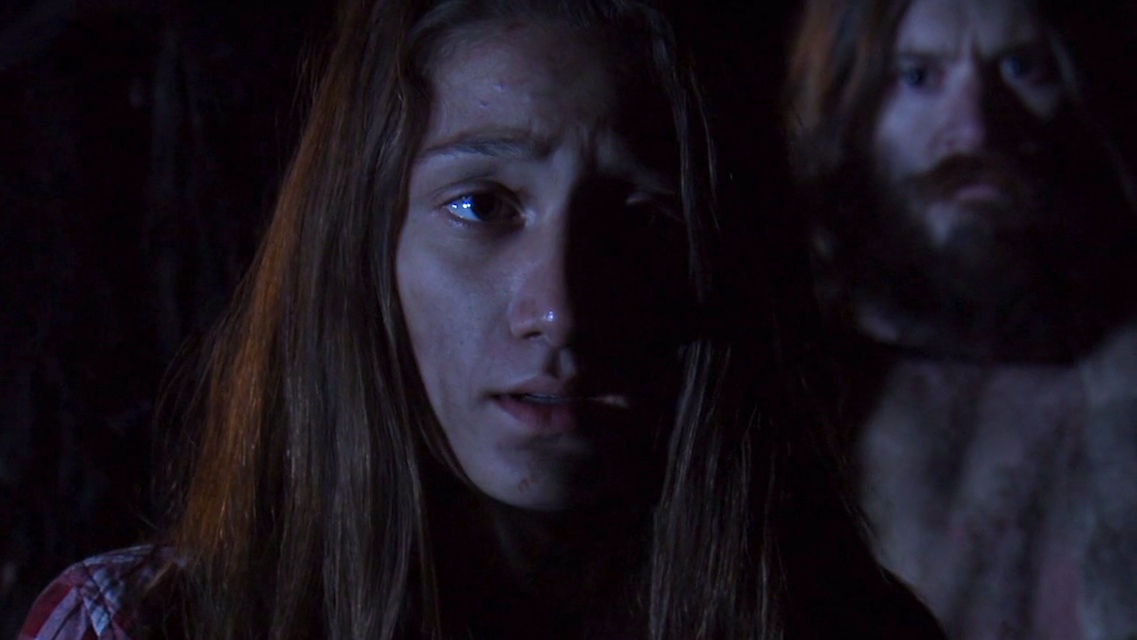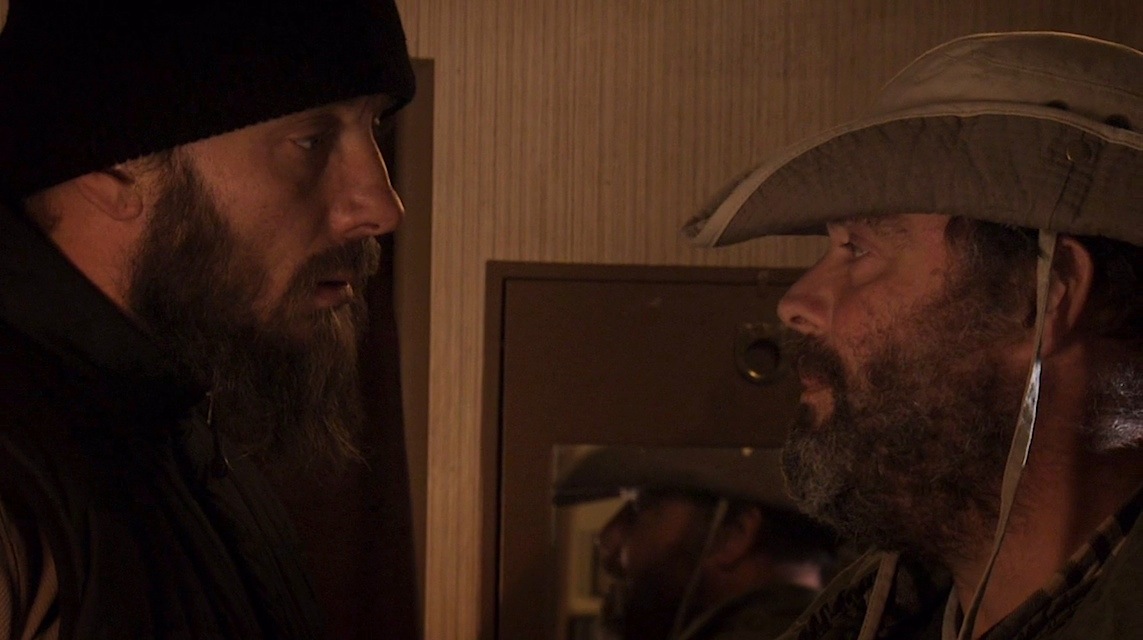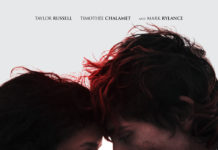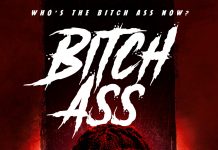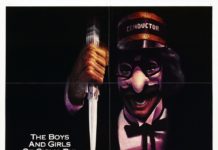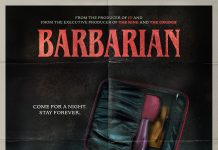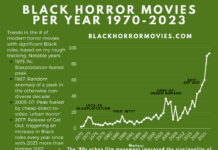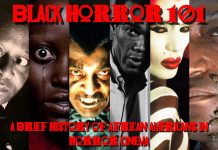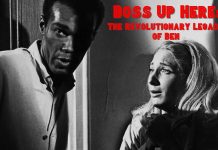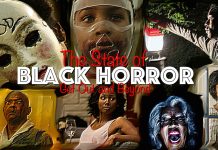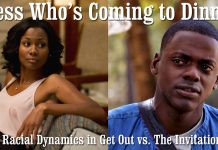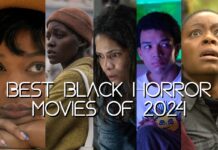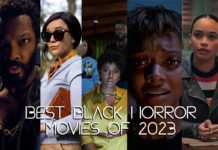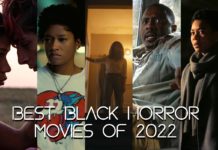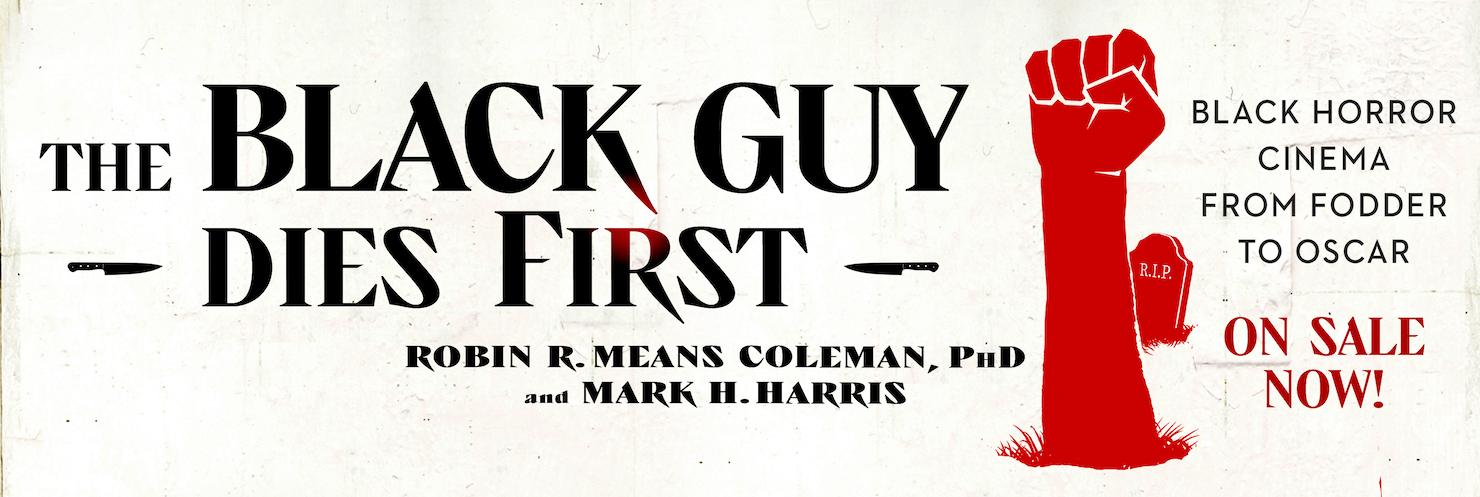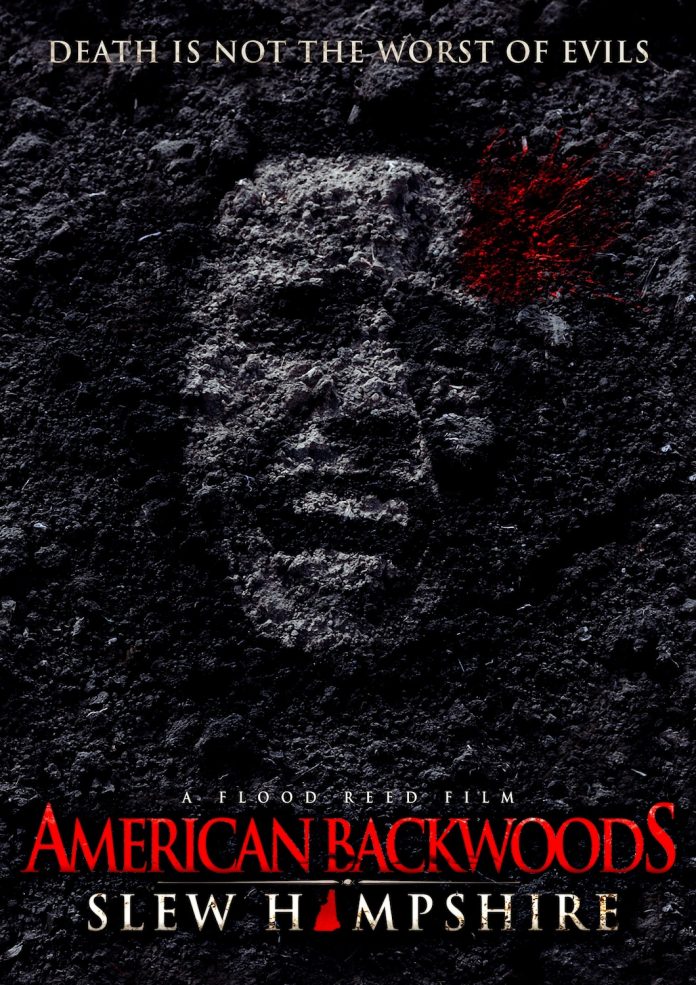American Backwoods: Slew Hampshire is a confounding little indie whose unique style and voice is as admirable as it is irksome. With its warped point of view, it would stand out even if it didn’t have a black protagonist, but for the purposes of this site, it’s the latter that makes it truly noteworthy.
Claiming to be “based on actual events,” American Backwoods is set in the fall of 1994, with Dayo Okeniyi starring as Bro, his informal name indicative of the oddball nature of this film. (Other character names include Buddy, Kid and Dude-Guy.) He’s a studious, serious-minded freshman at Dartmouth whose three knuckle-headed old high school friends (all white, all with painfully Bostonian accents) visit him one day to convince him go party with them that evening.
He reluctantly agrees, and they head off in search of a middle-of-nowhere strip club, which, being a horror movie, is a terrible idea. They soon find themselves held captive by a group of rednecks who like to hunt and kill humans — seemingly only men — for sport. They also like to rape them; whether that comes before or after they kill them depends on how romantic the mood is.
But as it turns out, these yokels are only the THIRD most dangerous hunters in these New Hampshire backwoods. Second is a roaming band of inbred cannibals who dress in animal pelts, speak in some sort of old Norse language and periodically supplement their ranks by kidnapping women for breeding. Oh, and there’s also the local legend of Eto Leechee, a creature rumored to roam the woods, killing anything in its path.
American Backwoods is basically Deliverance meets The Hills Have Eyes (or perhaps more accurately, given the woodsy setting, The Offspring) with a touch of Twin Peaks, as produced by Mark Wahlberg…if he were high on mushrooms. It peppers what could be a straightforward narrative with odd non sequiturs, absurdist (and juvenile) humor and quirky directorial/editing choices, like extreme close ups, quick cuts, strobe lights, black and white footage and weird distortion effects usually reserved for dream sequences or flashbacks.
It’s a shame that it’s so manic it drowns out its own intelligence (with references to classic poetry, linguistics and history) and outside-the-box innovation — which includes casting an African-American lead. Adhering to its non-PC approach, the film doesn’t shy away from addressing Bro’s race, as more “color blind” movies do. In one scene, for instance, Dude-Guy assumes he got a “Negro fund scholarship” to get into Dartmouth, while later he dismisses Bro’s blackness by telling him “Talking about Africa don’t make you more black.”
The concept of a character struggling with his racial identity is a complex and intriguing one — and especially unique for a horror movie — but like everything in American Backwoods, any potential for depth is drowned in self-consciously outrageous content and generally hazy portrayals.
The latter is evident in a scene where Bro’s friends are visiting him at school, and a group of black students that walks by glares suspiciously at Bro, but it’s not clear if it’s because they see him as some sort of sellout for hanging with white people or if they’re ostracizing him because of his mangled hand (the result of an accident from fooling around with his friends a few years earlier, a major point of contention that’s brought up but, in another example of wasted potential, frustratingly never serves a purpose in the story). I’d assume people wouldn’t be shallow enough to shun him because of his handicap, but on multiple occasions in the film, people react as if he has the plague, recoiling and even calling him a “freak.”
Similar questions arise later when the guys are captured by the hunters — and subsequently the cannibals. Each time he’s held captive, Bro is treated as somehow “special,” but we’re not sure why. Because he’s black? Because he’s got a bum hand? The rednecks keep him sequestered from the “unpleasantness,” referring to him as the “cherry on top,” and later, the cannibals keep him captive instead of killing and eating him for no apparent reason — although one woman seems to think he’s a warrior sent to lead them into battle (Because of his hand? Who knows.).
As such, Bro’s lengthy survival is through no effort of his own. He’s pretty much passive throughout, never really committing any of the acts of bravery, strength, perseverance or street smarts you’d expect from a main protagonist. In short, he’s a shitty hero. Granted, I appreciate that he’s the most level-headed, cerebral person in the film — characteristics not normally assigned to black characters in horror movies, but he’s also kind of a bump on a log as far as taking any sort of action.
It’s a credit to Okeniyi’s acting that he nonetheless manages to make Bro likable (in part because everyone else is so repugnant), his low-key demeanor communicating as much with nonverbal expressions as with dialogue. Surprisingly, for such a low-budget film, many of the performances are strong. Okeniyi has had big roles in major motion pictures like The Hunger Games, Terminator Genisys, Runner Runner, Endless Love and The Spectacular Now, but even the lesser-known cast members hold their own.
It’s a shame they don’t have more coherent material to work with, though. Maybe writer-director Flood Reed (who also appears as one of the yokels) should just be an “idea guy” who hands it over to other people to polish. He’s got the energy and creativity down, but he seems to need help with refinement and lucidity.
